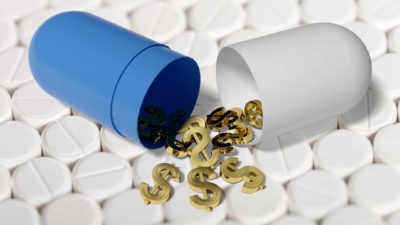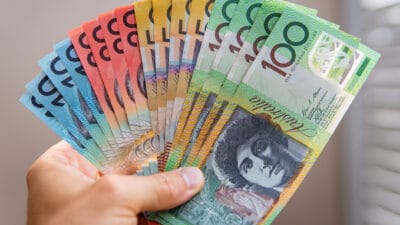There has never been an easier time to invest in many great companies on the ASX. We live in a world that is dominated by fast moving news and by-the-second business transactions, with Australia's economy integrated with those of other countries all across the globe.
Information and communication are always at the forefront of how we live today.
That being said, I believe there is currently no better company to invest in than CSL Limited (ASX: CSL). Here is why I would buy and hold CSL shares today.
What does CSL do?
Founded in 1916 (formerly known as Commonwealth Serum Laboratories), CSL has grown from a small cap stock to become a global biotherapeutics and vaccine company. With over 1,700 scientists working across the world, this biotech behemoth specialises in developing and delivering plasma-derived products for treating serious and rare diseases, as well as being one of the largest influenza vaccine providers.
What is CSL's economic moat?
The term 'economic moat' as popularised by legendary investor Warren Buffett, refers to a business' ability to maintain a competitive advantage over its competitors which allows it protect its market share and long-term profitability. It's often seen as a distinct advantage that is difficult to replicate and thus creating a barrier against rival firms.
Whilst CSL's wide economic moat is its large free cash flow amounts and strong track record of year-on-year returns, other advantages include its commitment to funding its R&D division to support continued growth.
In 2018/19 alone, CSL invested US$832 million for future-life saving medicines. Products in the pipeline include CSL112 – a potential game changer for heart attack patients. Currently in phase 3 trials, this novel apolipoprotein A-I infusion therapy is expected to prevent secondary heart attacks – 10% of which occur within 90 days of the first cardiovascular event.
John Deakin-Bell, a respected Citi biotech analyst has said that "if the product works and the trial is successful, it would be the single biggest opportunity for a product that CSL has developed."
It's estimated that the product could be released in early 2024 and reach global sales of an astonishing $5.75 billion per year. CSL's revenue for 2019 was $12 billion. That's almost 50% of its entire gross sales. This is just 1 of 37 products in its R&D portfolio.
And given the world is in midst of a pandemic, CSL (through its CoVig-19 Plasma Alliance) has been actively working toward developing a medicine to treat individuals with serious complications from COVID-19.
Is the CSL share price good value?
As Australia's second largest company based on valuation grounds of just over $125 billion, CSL is still growing at an impressive rate. Financial metrics such as return on equity (ROE) – a measure of a company making good profits from its assets – sits at around 15–25% in the healthcare sector. CSL has averaged ROE of 45.8% over the last 5 years.
Whilst that's only one of many indicators when reading a company's financial reports, you can see how the CSL share price from the past 12 months has risen 23% compared to the S&P/ASX 200 Index (ASX: XJO), which has fallen more than 8% during that time. Even a patient buy-and-hold investor would be smiling at their returns of 728% for the last decade.
Foolish takeaway
Some of the best quality stocks in the market are in the ASX healthcare sector, and I think that CSL is the standout. It offers a trailing dividend yield of 1.06% and projects strong growth for future shareholder returns.
Since the pandemic began, the CSL share price has fallen almost 20% below its all-time high of $342.75. This could be attributed to the drop in blood plasma donations which risk disrupting production of its medical therapies. In light of this, I believe this would make it an opportune time to pick up some CSL shares and hold for the long-term.
With its world class facilities, lifesaving treatments and innovative R&D products, the sky is the limit for this biotech leader.
At the time of writing, the CSL share price is sitting at $275.88 per share with a market cap of more than $125 billion.








